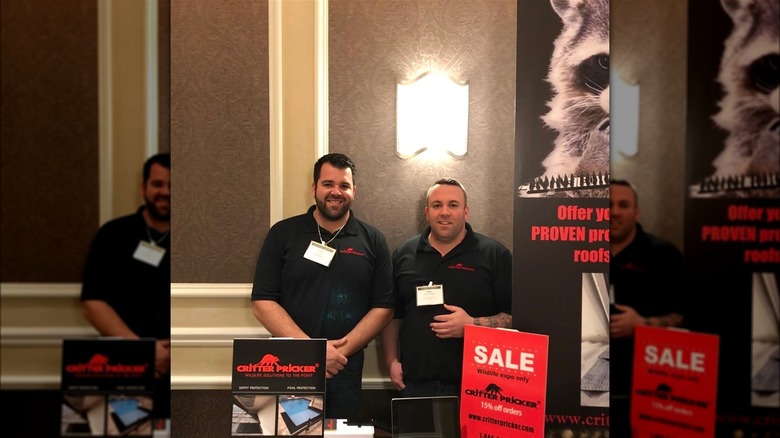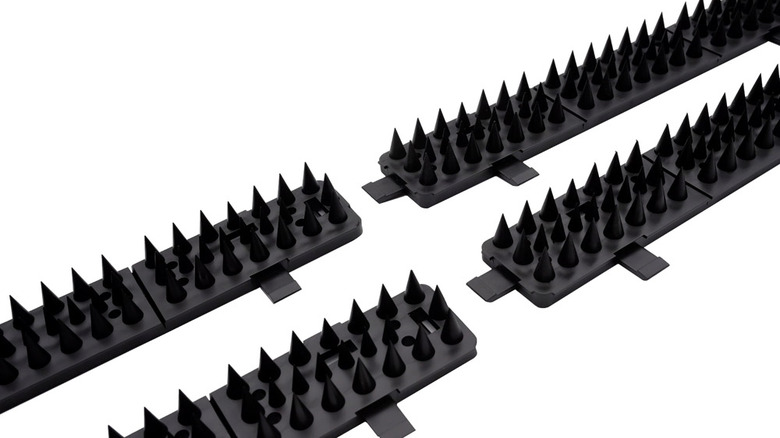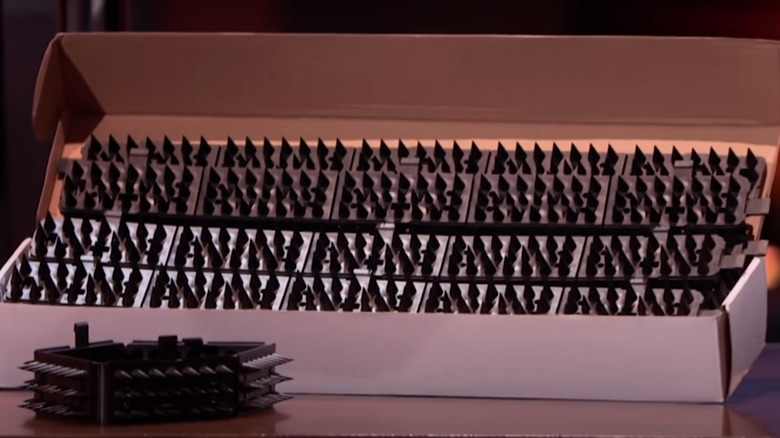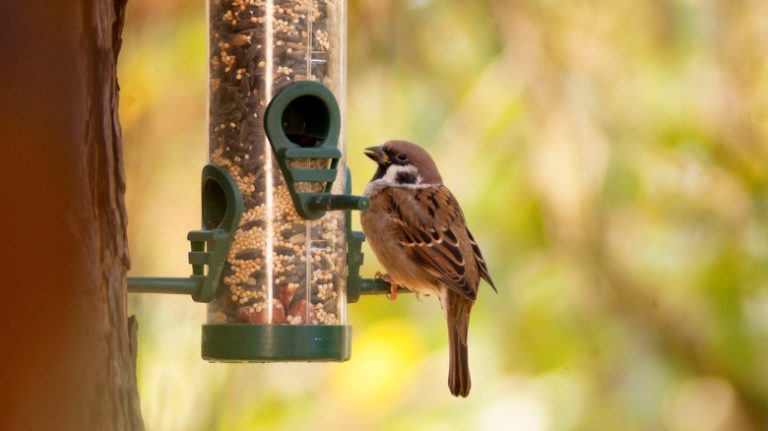YouTube
We may receive a commission on purchases made from links.
Businesses on “Shark Tank” come and go, but one that stuck with all of us is Joseph Balistreri’s Critter Pricker Raccoon Deterrent, which promised to repel raccoons and other sizable pests from our yards. The product features large polypropylene mat strips with spikes sharp enough to make the pests change their mind about crossing its path but not too threatening as to cause them physical harm. The mats can be spread all across the yard, so your fences, walls, gardens, trash cans, and roof will be guarded. Even your swimming pool is safe from midnight swimmers once you place these deterrents around it.
When the Pennsylvania native pitched his brainchild Critter Pricker Raccoon Deterrent on Season 11 of “Shark Tank” in 2024, it seemed like the odds were not in his favor. According to Balistreri, his company was valued at around $766,000, and things looked to be on the rise, a sentiment that was cemented by the generous investment made by Shark Kevin O’Leary. As fans of the show, we were already hooked when all the Sharks save O’Leary backed out of investing. All we want to know now is what’s happened so far and if the company survived past its reality show moment of fame.
What happened to Critter Pricker on Shark Tank?
“Shark Tank” has seen a lot of promising companies and pitches, and the Critter Pricker Raccoon Deterrent isn’t much different. When Joseph Balistreri pitched his humane pest control business, he gave a convincing speech. “Property owners can never feel too secure,” he told the Sharks. “These bandits cause thousands of dollars in damages a day … Being that raccoons have hypersensitive hands and a lack of depth perception, once they come in contact with the Critter Pricker’s patented plastic strips, they quickly move on. Goodbye, trash panda.”
When Balistreri revealed that he had only made $80,000 that year, the Sharks were not that impressed. Shark Barbara Corcoran raised an issue with the spikes having to be moved and replaced every day as the entrepreneur was explaining how he would cover the perimeter of a swimming pool with the spikes. “You set it up every night?” Corcoran asked in disbelief. Even Mark Cuban expressed skepticism about the safety of the product around people who could easily step on the spikes and sue for damages. “You’re dependent on your customer being smart,” he told Balistreri and backed out of the investment opportunity. Corcoran and Daymond John both cited liability as an issue with neighbors, kids, and pets and decided to follow Cuban’s footsteps by not going through with it. Despite most of the stars of “Shark Tank” bowing out, Balistreri managed to snag a $115,000 pledge from investor Kevin O’Leary for a 15% stake in the company, per Balistreri’s initial offer. However, O’Leary demanded a $2.50 perpetual royalty for each unit sold.
Critter Pricker after Shark Tank

The Critter Pricker products may not have been entirely embraced by the investors on “Shark Tank”, but they’ve been well received by customers who left positive reviews on the company’s Amazon page. The Critter Pricker spikes can be found on Amazon or directly on the website. However, the product has been out of stock on Amazon for a while although it’s been rated 531 times.
One reviewer called Jay shared back in 2024 how he foresaw the raccoon season and used his intuition to purchase some prickers ahead of time. Once the pests started rolling in, he quickly set them up and lay in wait. “From that night on, there hasn’t been one empty, trashed bird feeder,” he wrote. “Not only did it work for the raccoons, but it left no place for the squirrels to jump from or to, to get at the feeders. These are the best [purchases] I’ve made in my life.”
In 2024, another buyer, David, praised the sharpness of the spikes and its ease of use when it comes to setting it up. According to him, it is safe enough to even use indoors with his cat by barring it from certain places. However, he did observe that the connectors became less sturdy after being hooked together.
Although the product is riddled with good reviews, not everyone has positive things to say. One user, Martin, complained in May 2024 that the spikes were ineffective as the raccoons crawled around them and squirrels walked right through.
Is Critter Pricker still in business?

Critter Pricker
Joseph Balistreri has managed to keep a modest following on social media. His Critter Pricker Raccoon Deterrent company’s Instagram account seems pretty quiet, with just over 200 followers; and the last post on the page was a plea to customers uploaded in 2024 addressing a sold-out situation. In another 2024 post about his appearance on “Shark Tank,” Balistreri responded to a January 2024 comment asking if he was still in business with: “Yes and doing well.” The CEO’s LinkedIn page remains pretty barren, his only recorded activities being likes from posts as recent as 2024 as well as a repost of an upload made by FUBU creator and shark Daymond John calling for support for small businesses.
According to the Critter Pricker website, shipping costs are free with any purchase, which, coupled with the low social media presence, could be a potential indication of a downward trend in sales, but we can’t say for certain. Hopefully, Balistreri’s seeming aversion to social media implies a fulfilling life in the real world. One thing we are sure of, however, is that although Balistreri founded the company in Florida, it is currently based out of Pennsylvania. It has also expanded to other states like Illinois, Ohio, Massachusetts, and New York, which means the business could still be gaining ground and growing strong.




